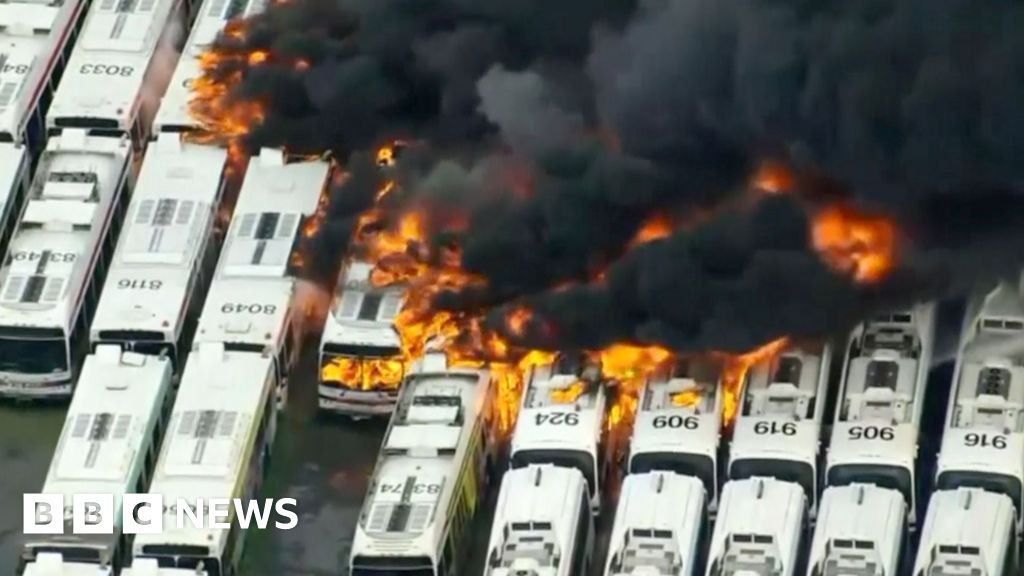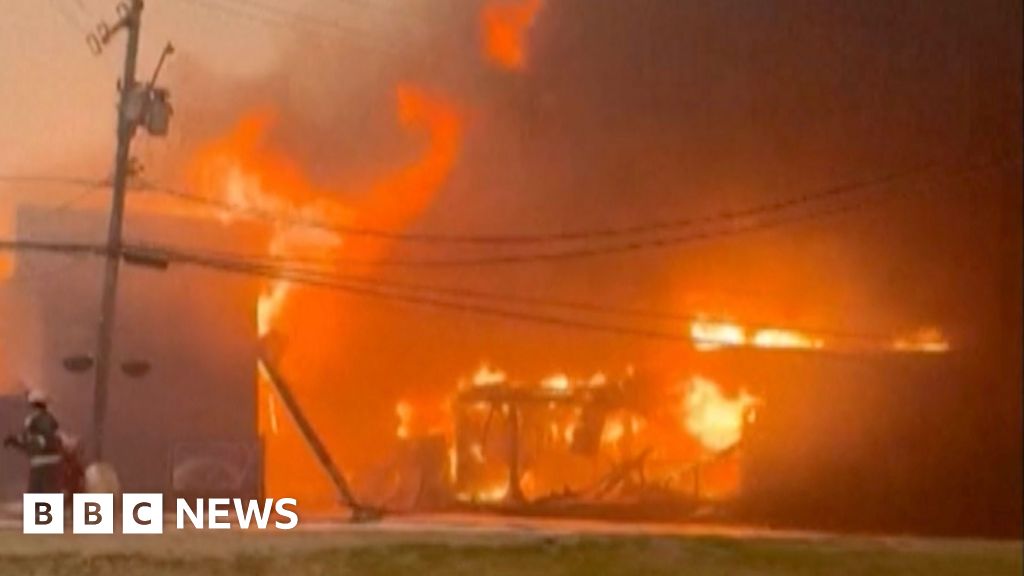ARTICLE AD BOX
By Vivienne Nunis
BBC News, Africa correspondent
The fog of war is a term usually used to describe confusion on the battlefield, but when it comes to Ethiopia, it could just as easily be applied to the bitterly fought information war surrounding the escalating conflict between Tigrayan rebels and government forces.
When the BBC was recently offered an interview with teenagers allegedly caught fighting for the rebels, we cautiously accepted.
"I was playing football with friends when I was forcefully recruited by Tigrayan fighters to join their ranks," one 17-year-old told us, on the phone from Afar, a state which borders Tigray.
The conflict began in Tigray in northern Ethiopia in November, but has since spread to the neighbouring regions of Afar and Amhara, where the TPLF rebels recently captured Lalibela, a town famous for its rock-hewn churches.
"I was taken by force to the war front," said another teenager, who told us he was in Year 10 at school in Tigray. "My family couldn't say anything because they feared for their life."
A 19-year-old woman said: "We didn't get any military training. They took us to Afar. They threatened to kill our family if we didn't join the fight."
The teenagers told us that around 50 adolescent boys and girls were rounded up near Tigray's capital Mekelle and forced to fight, before being captured by Afar's regional forces, who are allied to the federal government.
The first sign something wasn't right was when the Afar authorities, who offered us the interviews, insisted we conduct them in Amharic - Ethiopia's lingua franca - and not their native language, Tigrinya.
Then, when we listened back carefully to the recordings, our suspicions were confirmed - at times, we could hear the regional authority spokesman telling the teenagers what to say.
Similar interviews were broadcast on local Ethiopian television channels, with teenagers paraded slowly past the cameras looking like bored senior high school students, some with injuries apparently incurred in the fighting.
'Catalogue of horrors'
The Tigray conflict began in November following months of feuding between Prime Minister Abiy Ahmed and the Tigray People's Liberation Front (TPLF), once the dominant party in the federal government, over the prime minister's reform programme.
Troops from Eritrea also entered the conflict on the side of Mr Abiy.
The prime minister accuses the TPLF of becoming a terrorist organisation, while it insists that it is the legitimate government in its home region of Tigray.
The Ethiopian government has been accusing the Tigrayan fighters of using child soldiers ever since they recaptured Mekelle in June, eight months after government troops took control of it.
The New York Times published a story on this key turning-point in the war including photos of Tigrayan fighters, some of whom appeared to be underage.
The paper described them as "highly motivated young recruits" inspired by the "catalogue of horrors that has defined the war - massacres, ethnic cleansing and extensive sexual violence".
Since then, Prime Minister Abiy and his army of social media supporters have accused the Tigrayan rebels of forcibly recruiting child soldiers, doping them with drugs, and pushing them to the front lines.
TPLF spokesman Getachew Reda denied that teenagers were forced to join the group's ranks.
"If there is a problem with regard to teenagers - 17, 18, 19-year-olds, although 18 is the legal age to join the army - these are children whose parents have been subjected to untold suffering by the Eritreans, by Abiy's forces, by Amharic expansionists," he told the BBC.
"We don't have to force people. We have hundreds of thousands lining up to fight."
Government officials and rights groups have also accused Tigrayan fighters of committing atrocities, including killing hundreds of people from the Amhara ethnic group in western Tigray at the start of the conflict.
image sourceAFP
image captionAmhara militias have taken control of parts of western TigrayEarlier this month, a heavy artillery attack was reported on a health centre in Afar.
Social media was soon ablaze with claims that more than 100 people had been killed by the Tigrayan fighters and the hashtag #AfarMassacre quickly began trending.
The BBC spoke to a local hospital doctor, who said 12 people brought there had died from their injuries, but no-one could give us an official death toll at the scene.
The rebels denied the attack and said they'd welcome an investigation.
Murky war
Claims and counter-claims about every twist in the war are traded all day long on Twitter and Facebook - from the government, the TPLF, and their respective armies of supporters in Ethiopia and the diaspora.
With phone and internet lines down across Tigray for nearly two months now, obtaining information from the region has been almost impossible.
The federal government says communication lines won't be restored until the rebels accept a ceasefire.
The Tigrayan fighters say they won't accept a ceasefire until the blockade is lifted and all enemy forces leave the region.
"The federal government is intent on controlling information and the Tigrayan leaders are by no means averse to using propaganda," says Will Davison, senior Ethiopia analyst at the International Crisis Group think-tank.
"In addition, Ethiopia's media and civil society are relatively weak when it comes to exposing who is doing what. So there is a cocktail of factors contributing to the murkiness of this war."
image sourceAFP
image captionThousands of Tigrayans have joined the fight against the federal governmentThe delivery of aid to Tigray - where experts say hundreds of thousands of people are facing catastrophic levels of hunger - has been another key information battleground.
When the Tekeze Bridge was blown up on 1 July, eliminating a key aid route into the region and one of the few ways of reaching western Tigray, the federal government blamed the TPLF.
But Mr Davison says that argument doesn't add up.
"Tigrayan forces were on the offensive after the federal retreat, they wanted to reclaim western Tigray and regain access to aid, trade and vital services. Why would they destroy a critical river crossing?" he asks.
"Amhara and federal forces, however, were trying to cut off Tigray after retreating, and they wanted to hold on to western Tigray, so they had every reason to destroy the bridge."
Thousands of people have been killed since the war began, and millions more have been displaced. Both sides have been accused of human rights abuses.
Following the recent TPLF gains, Mr Abiy called for "all capable Ethiopians of age" to join the fight against the rebels.
Political dialogue appears to be a long way off. The information wars show no sign of dialling down either.

 3 years ago
157
3 years ago
157









 English (US) ·
English (US) ·